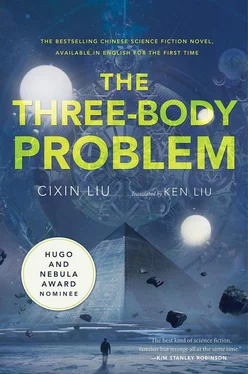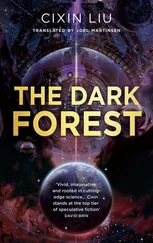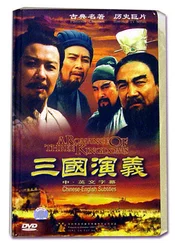Ye heard a cry next to her. Turning her head with great effort, she saw the baby’s pink, wet, little face.
The doctor told Ye that she had lost more than 2,000 ml of blood. Dozens of peasants from Qijiatun had come to donate blood to her. Many of the peasants had children who Ye had tutored, but most had no connection to her at all, having only heard her name from the children and their parents. Without them, she would certainly have died.
Ye’s living situation became a problem after the birth of her child. The difficult birth had damaged her health. It was impossible for her to stay at the base with the baby all by herself, and she had no relatives who could help. Just then, an old couple living in Qijiatun came to talk to the base leaders and explained that they could take Ye and her baby home with them and take care of them. The old man used to be a hunter and also gathered some herbs for traditional medicine. Later, after the forest around the area was lost to logging, the couple had turned to farming, but people still called him Hunter Qi out of habit. They had two sons and two daughters. The daughters were married and had moved out. One of the sons was a soldier away from home, and the other was married and lived with them. The daughter-in-law had also just given birth.
Ye still hadn’t been rehabilitated politically, and the base leadership was unsure about this suggested solution. But in the end, there was no other way, and so they allowed the couple to take Ye and the baby home from the hospital on a sled.
Ye lived for more than half a year with this peasant family in the Greater Khingan Mountains. She was so weak after giving birth that her milk did not come in. During this time, the baby girl, Yang Dong, was breastfed by all the women of the village. The one who nursed her the most was Hunter Qi’s daughter-in-law, called Feng. Feng had the strong, solid frame of the women of the Northeast. She ate sorghum every day, and her large breasts were full of milk even though she was feeding two babies at the same time. Other nursing women in Qijiatun also came to feed Yang Dong. They liked her, saying that the baby had the same clever air as her mother.
Gradually, Hunter Qi’s home became the gathering place for all the women of the village. Old and young, matrons and maidens, they all liked to stop by when they had nothing else going on. They admired Ye and were curious about her, and she found that she had many women’s topics to discuss with them.
On countless days, Ye held Yang Dong and sat with the other women of the village in the yard, surrounded by birch posts. Next to her was a lazy black dog and the playing children, bathing in the warm sunlight. She paid attention especially to the women with the copper tobacco pipes. Leisurely, they blew smoke out of their mouths, and the smoke, filled with sunlight, gave off a silvery glow much like the fine hairs on their plump limbs. One time, one of them handed her the long-stemmed cupronickel pipe and told her it would make her feel better. She took only two hits before she became dizzy, and they laughed about it for several days.
As for the men, Ye had little to say to them. The matters that occupied them all day also seemed outside her understanding. She gathered that they were interested in planting some ginseng for cash while the government seemed to be relaxing policies a little, but they didn’t quite have the courage to try. They all treated Ye with great respect and were very polite toward her. She didn’t pay much attention to this at first. But after a while, after observing how those men roughly beat their wives and flirted outrageously with the widows in the village, saying things that made her blush, she finally realized how precious their respect was. Every few days, one of them would bring a hare or pheasant he had caught to Hunter Qi’s home. They also gave Yang Dong strange and quaint toys that they’d made with their own hands.
In Ye’s memory, these months seemed to belong to someone else, like a segment of another life that had drifted into hers like a feather. This period condensed in her memory into a series of classical paintings—not Chinese brush paintings but European oil paintings. Chinese brush paintings are full of blank spaces, but life in Qijiatun had no blank spaces. Like classical oil paintings, it was filled with thick, rich, solid colors. Everything was warm and intense: the heated kang stove-beds lined with thick layers of ura sedge, the Guandong and Mohe tobacco stuffed in copper pipes, the thick and heavy sorghum meal, the sixty-five-proof baijiu distilled from sorghum—all of these blended into a quiet and peaceful life, like the creek at the edge of the village.
Most memorable to Ye were the evenings. Hunter Qi’s son was away in the city selling mushrooms—the first to leave the village to earn money elsewhere, so she shared a room in his house with Feng. Back then, there was no electricity in the village, and every evening, the two huddled around a kerosene lamp. Ye would read while Feng did her needlework. Ye would lean closer and closer to the lamp without noticing, and her bangs would often get singed, at which point the two of them would glance up and smile at each other. Feng, of course, never had this happen to her. She had very sharp eyes, and could do detailed work even in the dim light from heating charcoal. The two babies, not even half a year old, would be sleeping together on the kang next to them. Ye loved to watch them sleep, their even breathing the only sound in the room.
At first, Ye did not like sleeping on the heated kang, and often got sick, but she gradually got used to it. As she slept, she would imagine herself becoming a baby sleeping in someone’s warm lap. The person who held her wasn’t her father or mother, or her dead husband. She didn’t know who it was. The feeling was so real that she would wake up with tears on her face.
One time, she put down her book and saw that Feng was holding the cloth shoe she was stitching over her knee and staring into the kerosene lamp without moving. When she realized that Ye was looking at her, Feng asked, “Sister, why do you think the stars in the sky don’t fall down?”
Ye examined Feng. The kerosene lamp was a wonderful artist and created a classical painting with dignified colors and bright strokes: Feng had her coat draped over her shoulders, exposing her red belly-band, and a strong, graceful arm. The glow from the kerosene lamp painted her figure with vivid, warm colors, while the rest of the room dissolved into a gentle darkness. Close attention revealed a dim red glow, which didn’t come from the kerosene lamp, but the heating charcoal on the ground. The cold air outside sculpted beautiful ice patterns on the windowpanes with the room’s warm, humid air.
“You’re afraid of the stars falling down?” Ye asked softly.
Feng laughed and shook her head. “What’s there to be afraid of? They’re so tiny.”
Ye did not give her the answer of an astrophysicist. She only said, “They’re very, very far away. They can’t fall.”
Feng was satisfied with this answer, and went back to her needlework. But Ye could no longer be at peace. She put down her book and lay down on the warm surface of the kang, closing her eyes. In her imagination, the rest of the universe around their tiny cottage disappeared, just the way the kerosene lamp hid most of the room in darkness. Then she substituted the universe in Feng’s heart for the real one. The night sky was a black dome that was just large enough to cover the entirety of the world. The surface of the dome was inlaid with countless stars shining with a crystalline silver light, none of which was bigger than the mirror on the old wooden table next to the bed. The world was flat and extended very far in each direction, but ultimately there was an edge where it met the sky. The flat surface was covered with mountain ranges like the Greater Khingan Mountains, and with forests dotted with tiny villages, just like Qijiatun…. This toy-box-like universe comforted Ye, and gradually it shifted from her imagination into her dreams.
Читать дальше












